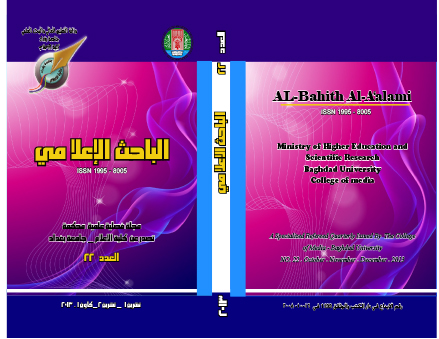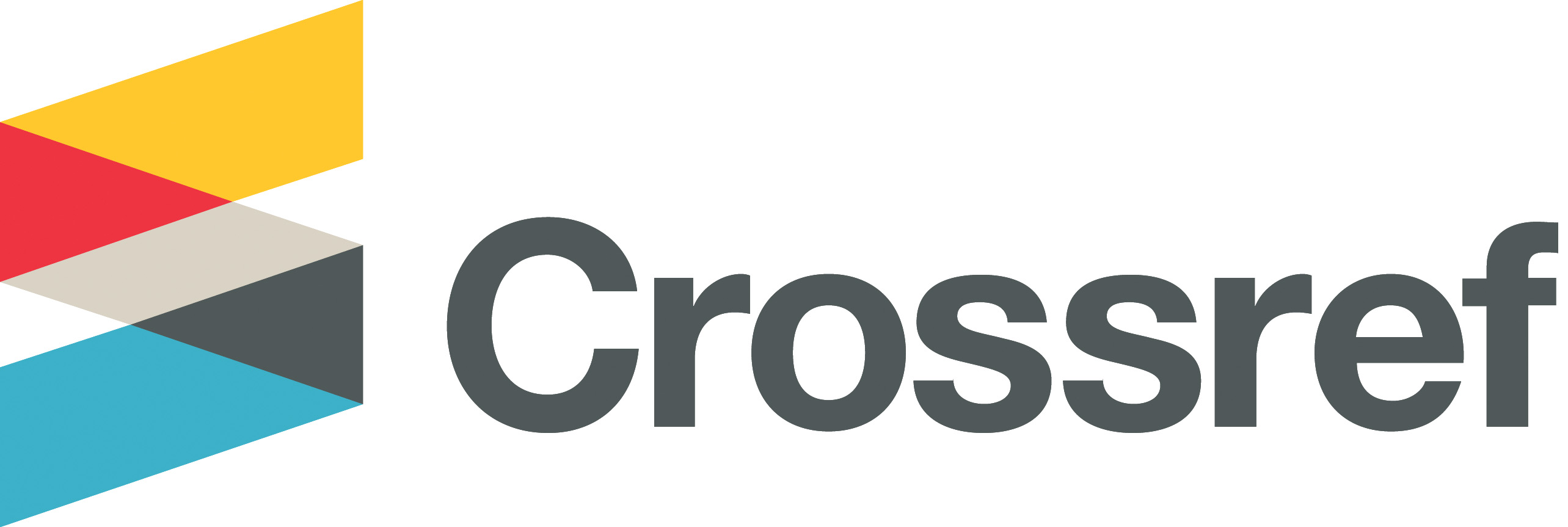Foreign Series in the Kurdish Satellite Channels and Their Role in the Development of Awareness among Young People in the Kurdistan Region (Korean Series as a Model) (A Field Study on a Sample of Students of the Institute of Fine Arts in the City of Sulay
DOI:
https://doi.org/10.33282/abaa.v5i22.306Keywords:
, Foreign Series , Kurdish, Satellite Channels, Young, People, the Kurdistan Region, Korean SeriesAbstract
The dubbing process for the Foreign Dramas by the Kurdish language became a serious phenomenon in the Kurdish satellite TV, especially in the past few years. It attracted a wide audience, especially young adolescents. And prepared by some breakthrough hostile to Kurdish culture and value coordinated by others remedy for the structural gaps and lapses have, as a result of climate which is brought into existence globalization and secretions variety dimensional, saturated value and cognitive effects bearing a strong identity of its elements. From here, the problem of this research is the ambiguity of their role in a series of developmental processes Kurdish awareness of young people and the extent of the impact that caused it.
This research is important from the theme referred to above, which is still an important focus on the priorities of community knowledge, information and technical and popular and others, as well as it studies the few that deal with this kind of soap operas and effects of development on the awareness of the youth, which contributes to the enrichment of Kurdish Library and alert researchers new interesting its other aspects that have not been studied yet.
This research as a description example aims to detect and confirm the type and importance of the information and knowledge provided by these serials for various community affairs and how they are displayed and interpreted, and to identify the motives of exposure receiver to those series and duration of time.
This research is somewhat descriptive research, which is through the study of the facts associated with the variables in question and clarifies, targeting recognized indicators laxatives to understand its ties with other phenomena. To achieve the objectives of this research, and to invoke the curriculum survey which demonstrated suitability for this purpose as proven by many scientific researches, I realized many important results, including:
- The information offered by the Korean series showed by the Kurdish satellite TV in the Kurdistan Region is adequate information and relative value, community events and crises in general.
- Sufficiency of those series to provide explanations and public surface phenomena and economic crisis and none sank in detail the structural and influential.
- Creating those negative effects series with the relative majority of respondents to the concepts of democracy and public freedoms, taking into consideration the dissenting views that compete with such a majority in number.
- The existence of contradictory assertions and relatively neutral, towards a pseudo- interpretation of the Korean Series about the fairness of factional strife in society and immortality.
The study, finally, sets some recommendations including:
- Follow-up young families for their children, especially adolescents and guiding them towards viewing main dramas.
- Kurdish interest in drama and the study develops and supports to bring it to the level of competition with foreign drama through productivity and up-gradation of art and technology.
Downloads
References
• ربحي مصطفى عليان وعثمان محمد غنيم، مناهج وأساليب البحث العلمي: النظرية والتطبيق، دار صفاء للنشر والتوزيع، عَمًان، 2000، ص42.
• محمد منير حجاب، أساسيات البحوث الإعلامية والإجتماعية، ط3، دار الفجر للنشر والتوزيع، القاهرة، 2006، ص78.
• ذوقان عبيدات وآخرون، البحث العلمي: مفهومه وأدواته وأساليبه، دار الفكر للطباعة والنشر والتوزيع، عَمًان، 1998، ص224.
★ مُقابلة مع مدير المعهد رؤؤساء أقسامه الثلاث، بتأريخ (14،15/2/2012) .
★★ المُحكمين هم السادة:
أ. د. فؤاد علي إحمد، جامعة السليمانية، قسم الإعلام، الصحافة.
ب. د. نزاكت حمةسعيد، جامعة السليمانية، قسم الإعلام، التلفيزيون.
ت. د. هيرش رسول، جامعة السليمانية، قسم الإعلام، الصحافة.
ث. د. حكيم عثمان، المعهد الفني، قسم الإعلام، التلفيزيون.
ج. د. إبتسام إسماعيل، جامعة السليمانية، قسم الإعلام، التلفيزيون.
2. ينظر إلى:
• علي رضا، البناء الدرامي في الراديو والتلفيزيون، دار الفكر العربي، القاهرة، ص35.
• ول ديورانت، قصة الحضارة، (الجزء الأول-المجلد الثاني)، ت: محمد بدران، دار الجيل، ط3، القاهرة، 1968، ص422.
3. إبراهيم حمادة، كتاب أرسطو- فن الشعر، مكتبة الأنجلوالمصرية، القاهرة، 1982، ص72-73.
4 . محمد حمدي إبراهيم، أدبيات نظرية الدراما الإعريقية، الشركة المصرية العالمية للنشر- لونجمان، دار نوبار للطباعة، القاهرة، 1994، ص10-11.
5. يُنظر إلى:
• سامية أحمد علي، أسس الدراما الإذاعية راديو وتلفيزيون، الدار المصرية اللبنانية، القاهرة، 2009، ص189.
• زيادة أبو غنيمة، السيطرة الصهيونية على وسائل الإعلام العالمية، بدون مكان نشر، الأردنعمان، 1984، ص65.
• مارشال مكلوهان، كيف نفهم وسائل الإتصال، ت: خليل صابات، المطبعة العربية الحديثة، القاهرة، دون سنة الطبع، ص23.
6. ينظر إلى:
• خليل صابات، وسائل الإعلامنشأتها وتطورها، مكتبة الأنجلو المصرية، القاهرة، 1976، ص155.
• محمد عوض، المدخل إلى فنون العمل التلفيزيوني، دار الفكر العربي، القاهرة، 1986، ص910.
7. ينظر إلى:
• ستيفن إينزلابير وآخرون، لعبة وسائط الإعلامالسياسة الأمريكية في عصر التلفيزيون، ت:شحدة فارع، دار البشير للنشر والتوزيع، الأردنعمان، 1998، ص8 -16.
• ستيفن إينزلابير وآخرون، مصدر سابق، ص16.
• جمال مجاهد وآخرون، مدخل إلى الإتصال الجماهيري، دار المعرفة الجامعية، مصر، 2006، ص190192.
8. منصور نعمان، فن كتابة الدراما للمسرح والإذاعة والتلفيزيون، دار الكِندي للنشر والتوزيع، الأردن، 1999، ص66 68.
9. يُنظر إلى:
• منصور نعمان، المصدر نفسه، ص79.
• سامية أحمد علي، مصدر سابق، ص142.
10. Robert L. Hilliard، المتابة للتلفيزيون والإذاعة ووسائِل الإعلام الحديثة، ت: مؤيد حسن فوزي، دار الكتاب الجامعي، إ.ع.م، العين، 2003، ص422.
11 . المصدر نفسه، ص419.
12. سامية أحمد علي، مصدر سابق، ص149.
13. عادل النادي، مدخل إلى فن كتابة الدراما، مؤسسات عبدالكريم بم عبدالله، تونس، 1987، ص60.
14. يُنظر إلى:
• Robert L. Hilliard، مصدر سابق، ص427.
• منصور نعمان، مصدر سابق، ص84 87.
15. يُنظر إلى:
• سامية أحمد علي، مصدر سابق، ص ص191 192.
• حسن مرعي، فن الكتابة التلفيزيونية، شركة رشاد برس للطباعة والنشر والتوزيع، بيروت، 1997، ص154.
16 . يُنظر إلى:
• قيس الزبيدي، بنية المسلسل الدرامي التلفيزيوني، شركة قدمس للنشر والتوزيع، دمشق، 2001، ص18-19.
• سير بازيل بارتليت، تأليف التمثيلية التلفيزيونية، ت: عزت النصيري، الهيئة المصرية للتأليف والنشر، القاهرة، 1970، ص55.
17. يُنظر إلى:
• فريد مرعي، من تراث النقاد السينمائيين في مصر، المركز القومي للسينما، القاهرة، 1998، ص98.
• منى الصبيان، فن المونتاج في الدراما التلفيزيونية، الهيئة المصرية العامة للكتاب، القاهرة، 2001، ص17.
18. يُنظر إلى:
• جورج لوثر، دليل التأليف التلفيزيوني، ت: عزت النصيري، الهيئة المصرية العامة للكتاب، القاهرة، 1980، ص230.
• سامية أحمد علي، مصدر سابق، ص ص198-213.
19. يُنظر إلى:
• كرم شلبي، معجم مصطلحات الإعلامية(إنجليزيعربي)، ط1، دار الجيل، بيروت، 1994، ص195-196، 610، 969.
• جون كولينز و نانسي باتريسيا أوبراين، قاموس دار العلم-غرينوود للمصطلحات التربوية، دار العلم للملايين، بيروت، 2008، ص119، 599.
• مارفن كارسون، نظريات المسرح، ت: وجدي زيدان، مكتبة الأنجلومصرية، القاهرة، 1997، ص13.
• سامية أحمد علي، مصدر سابق، ص ص214، 252-285.
• عبدالله حسين الصفار، إتجاهات الطلبة الجامعيين الكويتيين نحو المسلسلات الدرامية المدبلجة في القنواة العربية دراسة ميدانية، رسلة ماجستير غير منشورة، مقدمة إلى كلية الإعلام، جامعة الشرق الأوسط، 20112012، ص1923.
20 . يُنظر إلى:
• جيهان أحمد فؤاد عبد الغني، دور الدراما التلفيزيونية في تشكيل إتجاهات الطفل نحو إختيار المهنة، رسالة ماجستير غير منشورة، مُقدمة إلى كلية الإعلام ، جامعة القاهرة، 1999، ص180.
• سامية أحمد علي، مصدر سابق، ص ص107.
21. عماد نداف و محمد نداف، الدراما التلفيزيونية – التجربة السورية نموذجاً، دار الطليعة الجديدة، دمشق، 1994، ص18، 67.
22 . يُنظر إلى:
• سعيد مبارك آل زعير، التلفيزيون والتغير الإجتماعي، دار ومكتبة الهلال للطباعة والنشر، بيروت، 2008، ص164-167، 284.
• أسامة ظافر كبارة، برامج التلفيزيون والتنشئة التربوية والإجتماعية للأطفال، دار النهظة العربية، بيروت، 2003، ص156-157.
• محمد عبدالغني حسن هلال، مهارات التوعية والإقناع، مركز تطوير الأداء والتنمية، مصر، 2003، ص146.
• عبدالمجيد شكري، الدراما المرئية، العربي للنشر والتوزيع، القاهرة، 1994، ص85.
• محمد محمد عمارة، دراما الجريمة التلفيزيونية، دارالعلوم للنشر والتوزيع، القاهرة، 2008، ص48.
• مايسة السيد طاهر جميل، صورة العنف في العلاقة بين الرجل والمرأة كما تقدمها الدراما العربية في التلفيزيون المصري، دراسة تحليلية ميدانية، رسالة ماجستير غير منشورة مقدمة إلى كلية الأعلام ، جامعة القاهرة، 2003، ص83.
• عواطف عبدالرحمن، قضايا التبعية الإعلامية والثقافية في العالم الثالث، عالم المعرفة، الكويت، 1984، ص87-193.
23. عزالدين عطية المصري، الدراما التلفيزيونية-مقوماتها وضوابطها الفنية، رسالة ماجستير غير منشورة مقدمة إلى كلية الآداب، الجامعة الإسلامية، غزة، 2010، ص69.
24. أديب خضور، سوسولوجية الترفيه في التلفيزيون-الدراما التلفيزيونية، أديب خضور، دمشق، 1997، ص20.
25. يُنظر إلى:
• سعيد مبارك آلزعيتر، مصدر سابق، ص187-196.
• السعيد بو معيزة، التضليل الإعلامي وأفول السلطة الرابعة، كتاب مصور، pdf، ص12-16. https://www.mediafire.pdf
Downloads
Issue
Section
License
Authors retain copyright and grant the journal right of first publication with the work simultaneously licensed under a Creative Commons Attribution License (CC BY 4.0) that allows sharing the work with recognition of authorship and initial publication in ABBA journal.


















